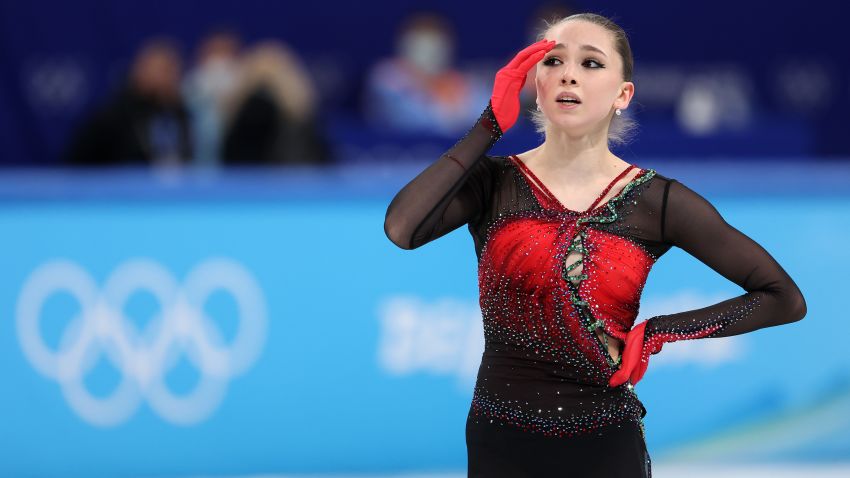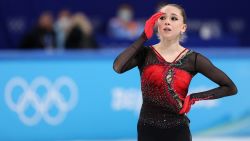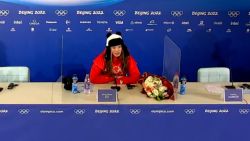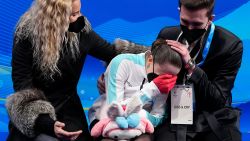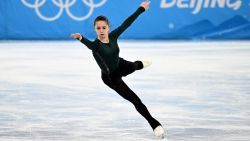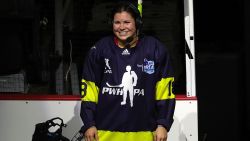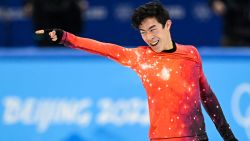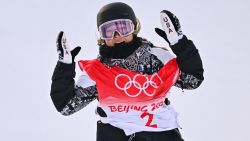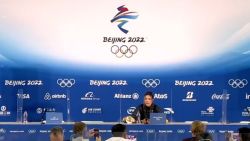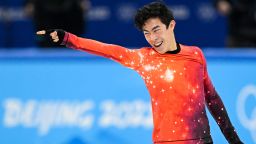The Court of Arbitration for Sport (CAS) has announced that a hearing regarding Russian figure skater Kamila Valieva’s positive drug test will be held on Sunday at 8:30 p.m. Beijing time (7:30 a.m. Eastern time).
This comes after CAS received a third application, filed by the International Skating Union (ISU), regarding the case of the 15-year-old Valieva, who tested positive for the banned heart drug trimetazidine in December.
The International Testing Agency (ITA) – on behalf of the International Olympic Committee (IOC), the World Anti-Doping Agency (WADA) and the ISU – said on Friday they would be appealing the Russian Anti-Doping Agency’s (RUSADA) decision to lift a provisional suspension on Valieva.
According to CAS, a decision on what sanctions Valieva could face will be made on Monday afternoon.
Valieva is due to compete in the short program of the women’s singles event on Tuesday.
READ: US could prosecute Russians in Kamila Valieva case, says USADA chief
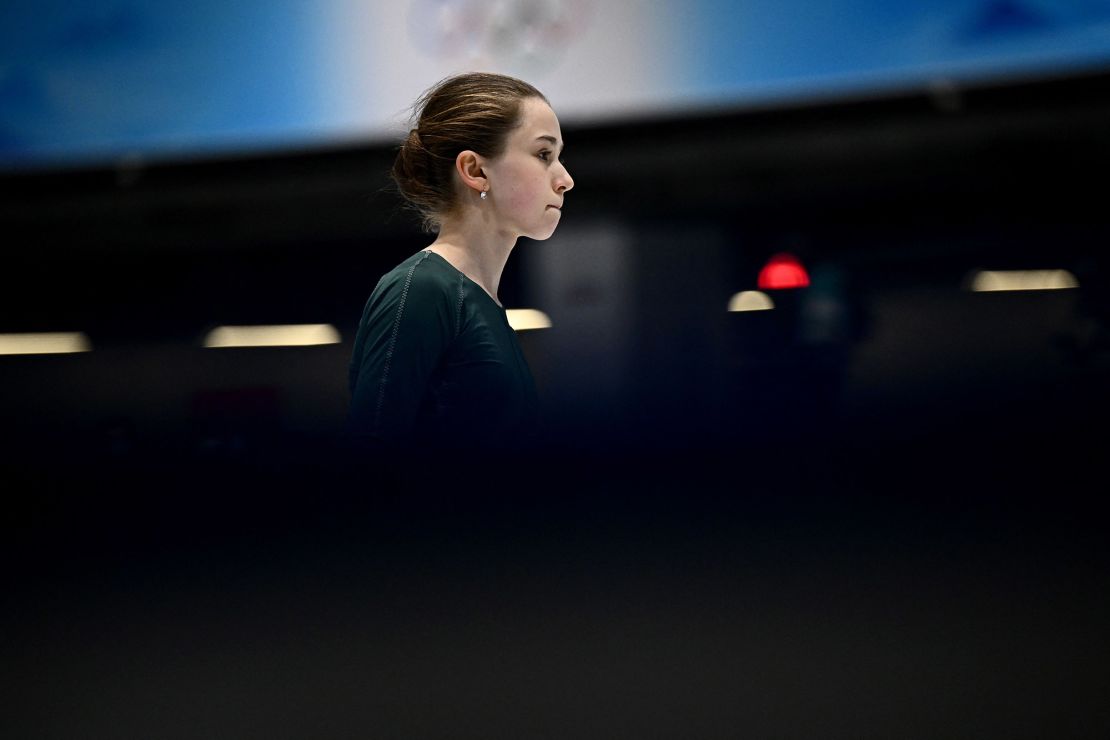
Russian Sports Minister Oleg Matytsin said on Saturday that he had been in contact with Valieva and reiterated a similar message of support that the president of the Figure Skating Federation of Russia, Olympic champion Alexander Gorshkov, had also conveyed on Saturday.
“Yesterday and the day before yesterday, I spoke with Kamila,” Matystin said. “She is a very strong person, despite her young age. There is optimism and energy in her voice, which increasingly convinces us that she is innocent.
“We are doing everything to protect the interests of our athlete and all of our sports. I hope for an objective consideration of the case. We will give assessments based on the results.
“There are two components, one of which is the question of Kamila’s suspension. We hope that this will not happen. And the second component is an analysis of this entire process. We hope that all the circumstances of this story, including age, will be taken into account.”
Fifteen-year-old Valieva, a breakout star of the Games who helped the Russian Olympic Committee (ROC) take home gold in Monday’s figure skating team event, was allowed to compete despite testing positive for trimetazidine, which is commonly used to treat people with angina, the ITA said in a statement.
The failed test only came to light during the Winter Olympics, and it remains unclear if the drug test controversy will see the medal revoked.
The scandal continues to delay the awarding of medals to all three teams, silver for Team USA and bronze for Team Japan.
“The decision on the results of the ROC team in the Team Figure Skating event can be taken … only after a final decision on the full merits of the case has been taken,” the ITA said.
Responding to the controversy, the ROC said Valieva had “repeatedly passed doping tests” while already in Beijing, adding that it is taking measures to keep Valieva’s “honestly won” gold.
“The doping test of an athlete who tested positive does not apply to the period of the Olympic Games. At the same time, the athlete repeatedly passed doping tests before and after December 25, 2021, including while already in Beijing during the figure skating tournament. All the results are negative,” the ROC statement said.
“The Russian Olympic Committee is taking comprehensive measures to protect the rights and interests of the members of the ROC Team, and to keep the honestly won Olympic gold medal.”
Why was Valieva allowed to compete?
The ITA, which leads the anti-doping program for the Beijing Winter Olympics, said Valieva’s drug sample was taken at the Russian Figure Skating Championships in Saint Petersburg on December 25.
However, it took until February 8 for a laboratory in Sweden to report it had detected a banned substance – one day after the ROC won gold at the team event in Beijing.
According to the ITA, Valieva tested positive for trimetazidine – a drug used to treat the heart condition angina, which causes chest pain due to poor blood flow to the heart. It is on the World Anti-Doping Agency’s (WADA) banned list.
Hormone and metabolic modulators are a class of drugs banned by WADA due to evidence of athletes using them for performance enhancement, as they can increase blood flow and improve endurance.
Valieva was immediately given a provisional suspension by Russia’s Anti-Doping Agency (RUSADA), which automatically prohibits athletes from participation in all sports.
The figure skater challenged the suspension on February 9 and, at a hearing that same day, RUSADA decided to lift the provisional ban – allowing her to continue competing at the Olympics, according to the ITA.
At 15, Valieva is a minor and therefore considered a “Protected Person” under the World Anti-Doping Code, which means her name does not need to be disclosed to the public.
The ITA said it released her identity following media reports naming her based on “unofficial information,” and the ITA said it “acknowledges the necessity for official information due to heightened public interest.”
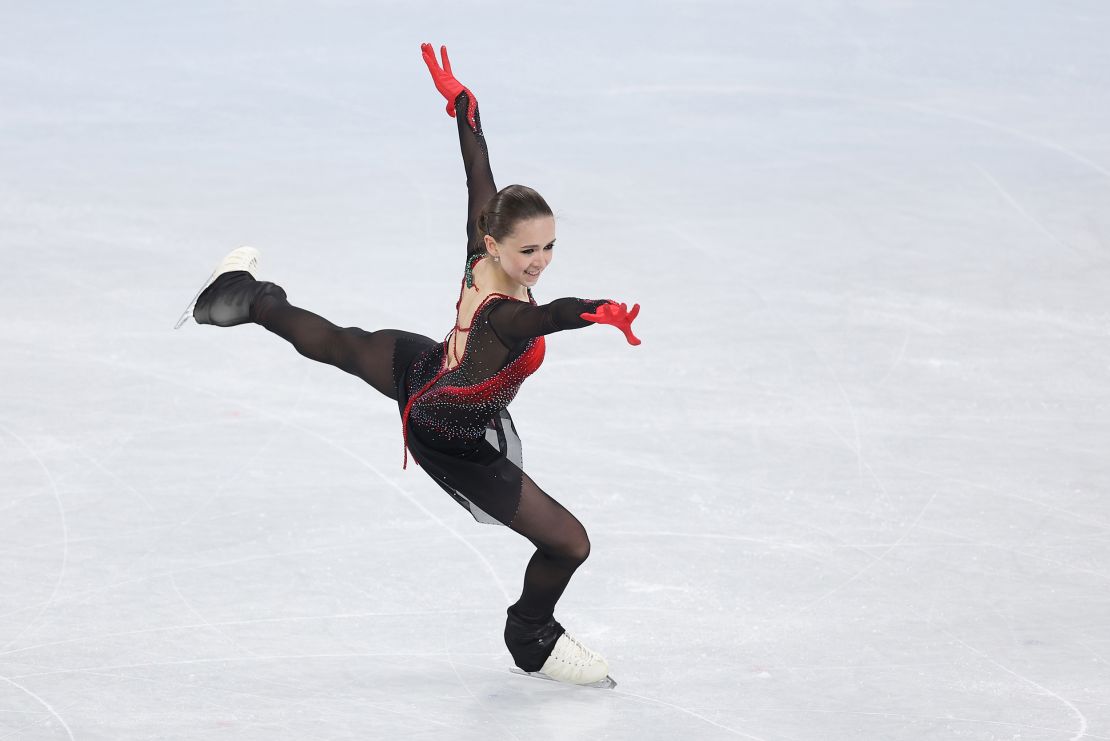
IOC ‘looking at the entourage’
Russian athletes are unable to compete in the Olympics under their country’s name due to sanctions from the IOC and WADA as a result of the country’s “systemic manipulation” of anti-doping rules during the 2014 Sochi Games.
As Valieva’s case continues to be examined, IOC spokesperson Mark Adams referenced the work of the IOC’s “Entourage Commission” while speaking to journalists on Friday.
According to the Olympic website that commission “advises the IOC Session, the IOC Executive Board and the IOC President on supporting and protecting clean athletes.”
“We realized some time ago this is very, very important that all of the people, the coaches, doctors and everyone around the athlete – it’s important that they have their responsibility too,” said Adams on Friday.
“And by the way, we don’t just look at athletes involved in these cases, we do look at the entourage. It is very important, but I really don’t want to speak much further on this topic because it strays into discussing the case and I can’t do that I’m afraid.”
On Friday, Kremlin spokesman Dmitry Peskov said there was a “misunderstanding” over Valieva’s positive test as he offered full-throated support to the figure skater.
“We have great respect for both WADA and the IOC,” Peskov told reporters on a conference call.
“They are dealing with this situation at the moment. Let’s not rush, let’s wait for the completion of the proceedings and the decision of the IOC. For now, we all support our Kamila Valieva and wish her success.”
Asked if the Kremlin had any questions for Russian sports officials over the situation, Peskov said: “The Kremlin has no questions at the moment. The Kremlin has an appeal to everyone: let’s wait. Our sports officials are doing their job.
“We are convinced that there was some kind of misunderstanding. Our sports officials have questions about the timing of testing Valieva’s samples … but we do not comment and do not want to comment on the situation, we are waiting for the completion of the proceedings.”
CNN’s Rebecca Wright, Christine Brennan and Nathan Hodge contributed reporting.


